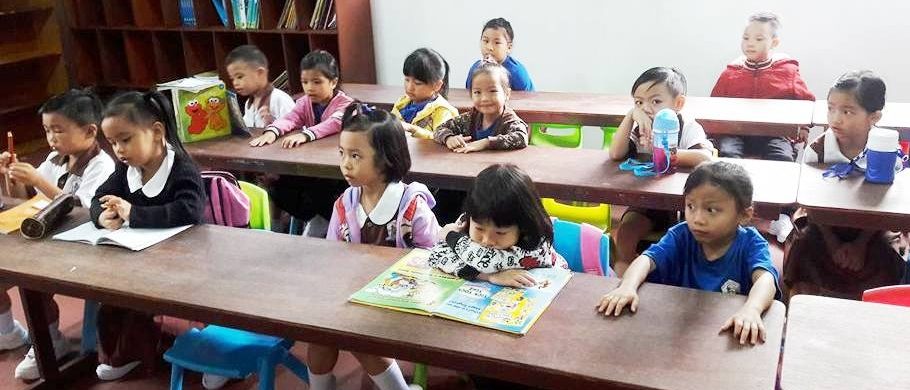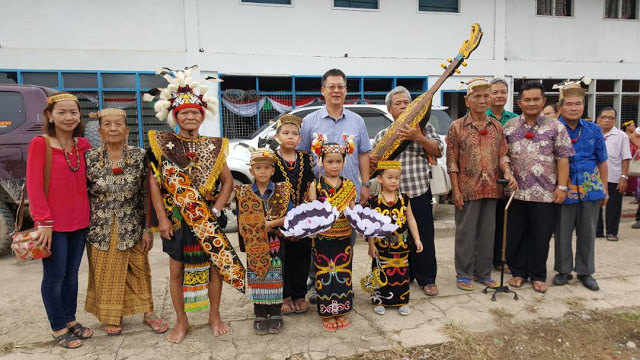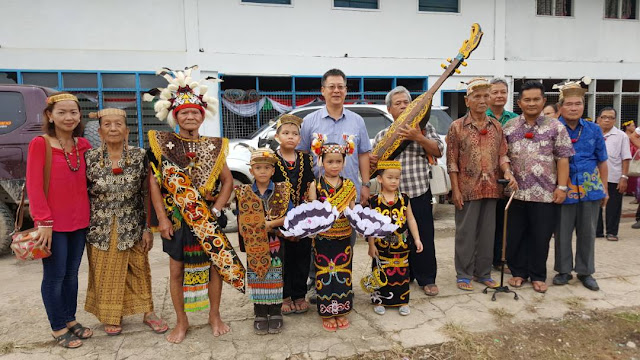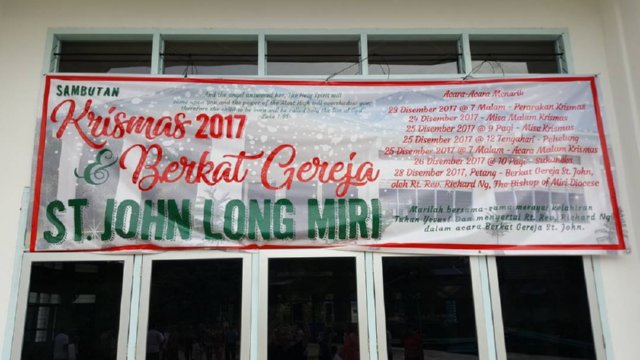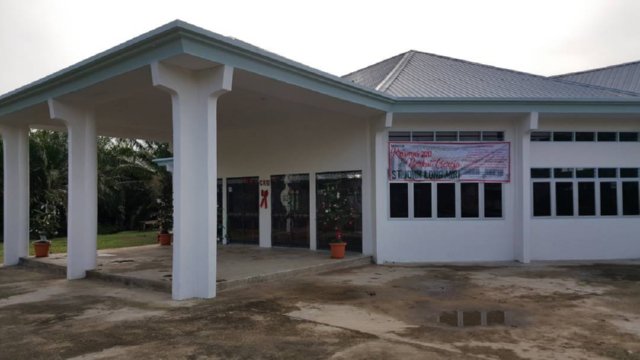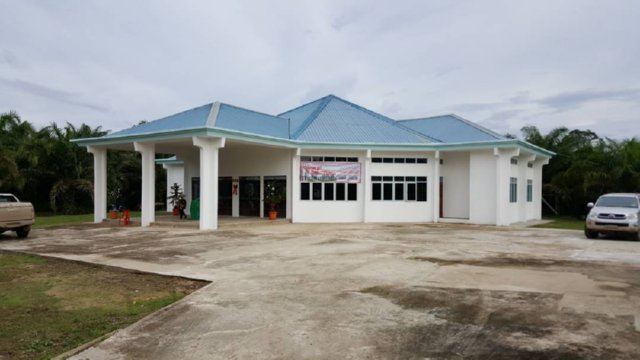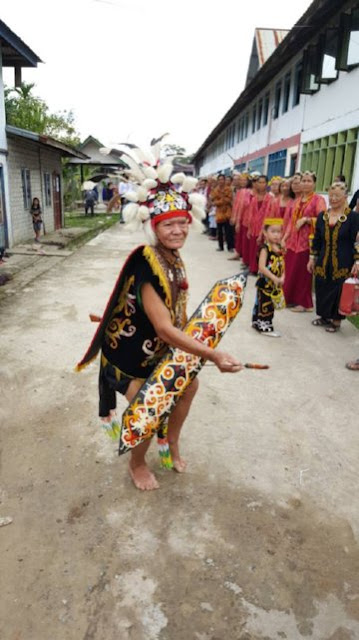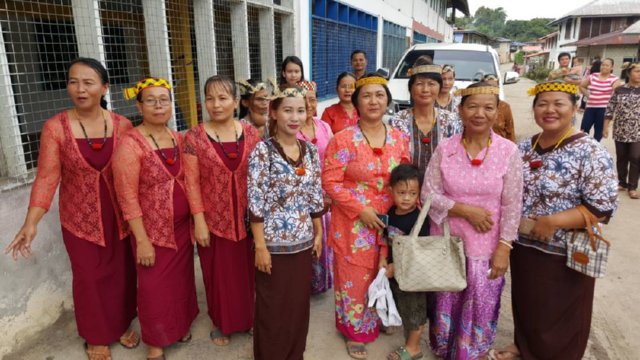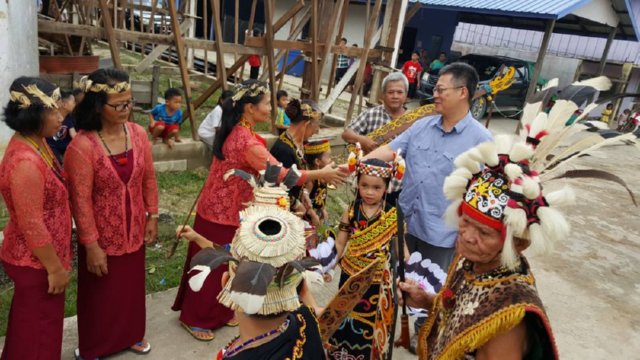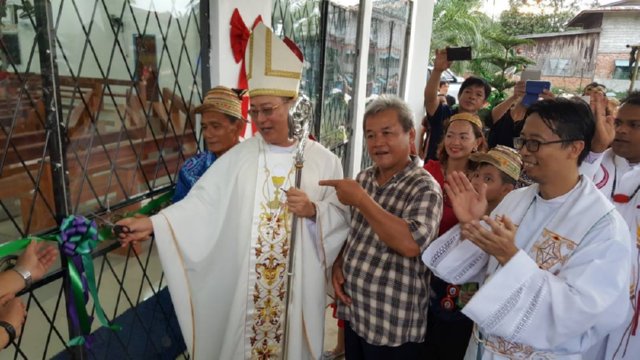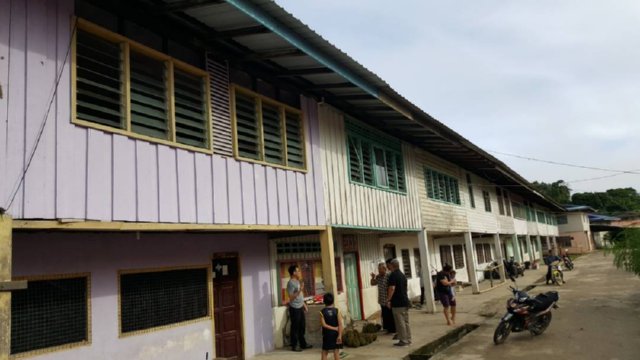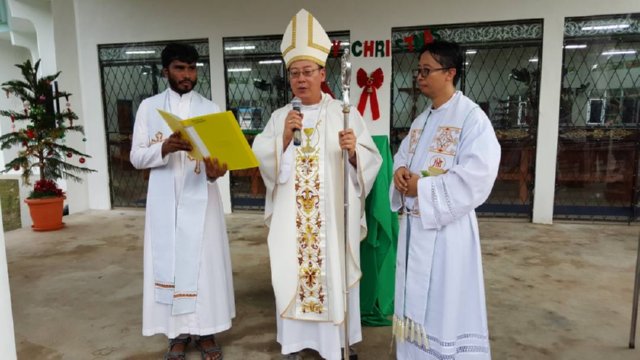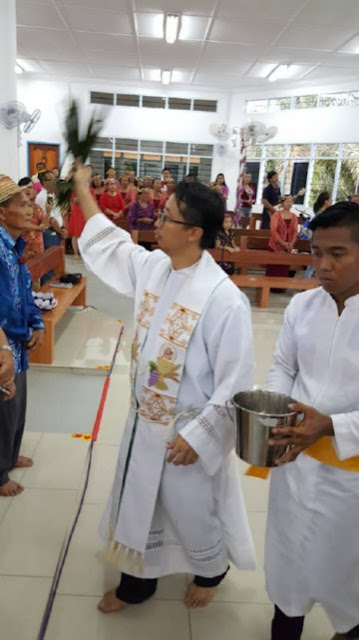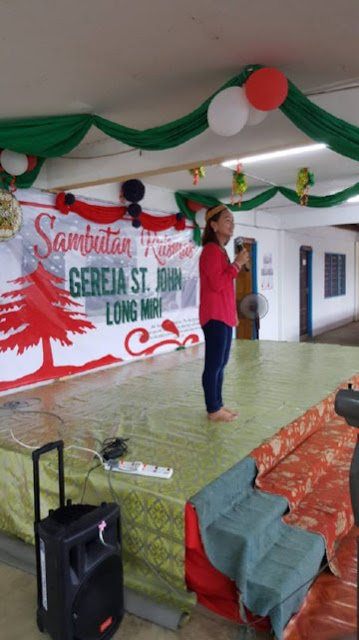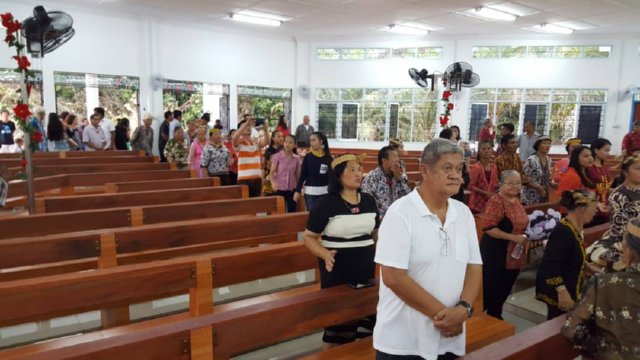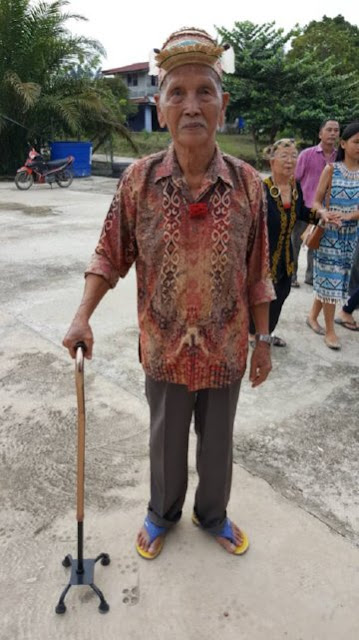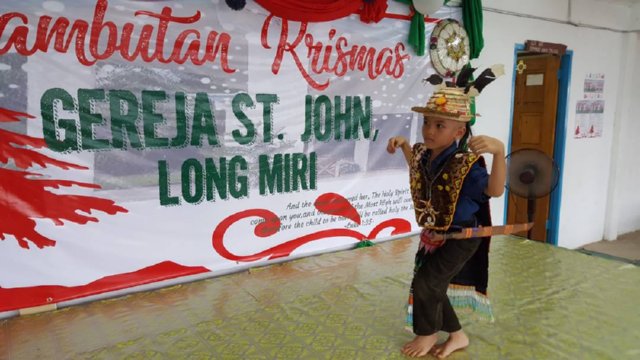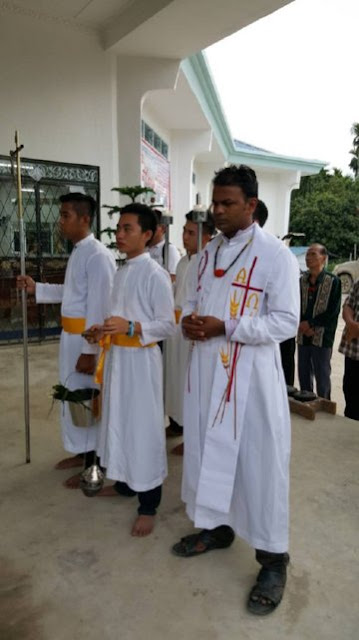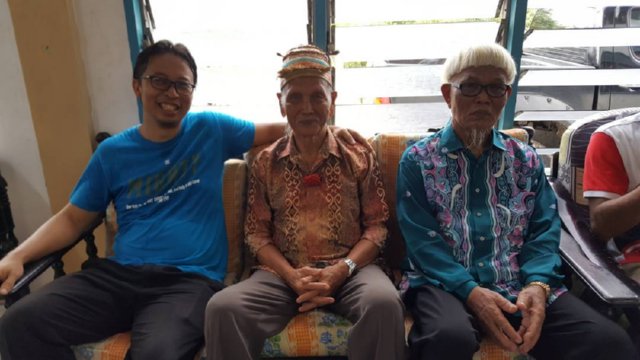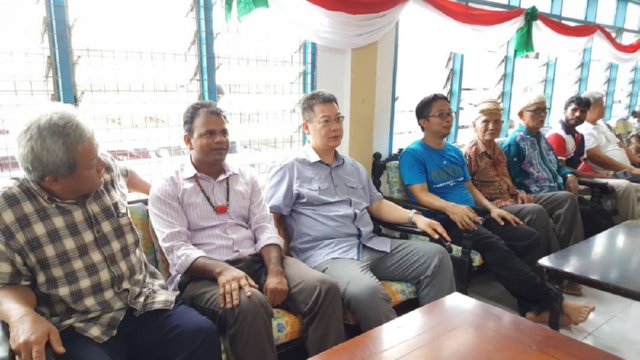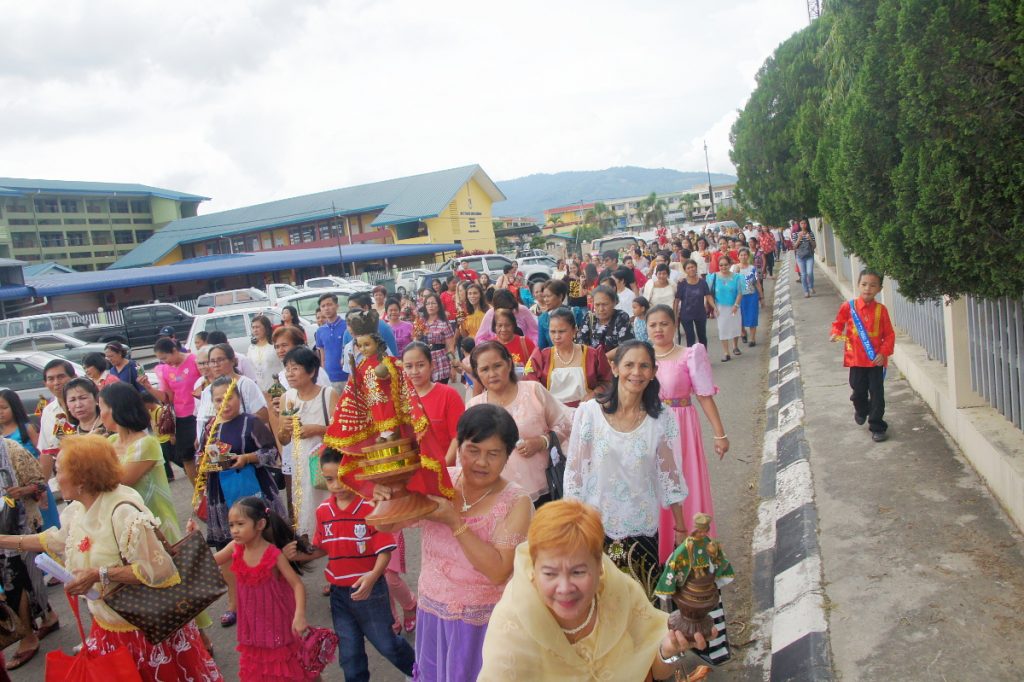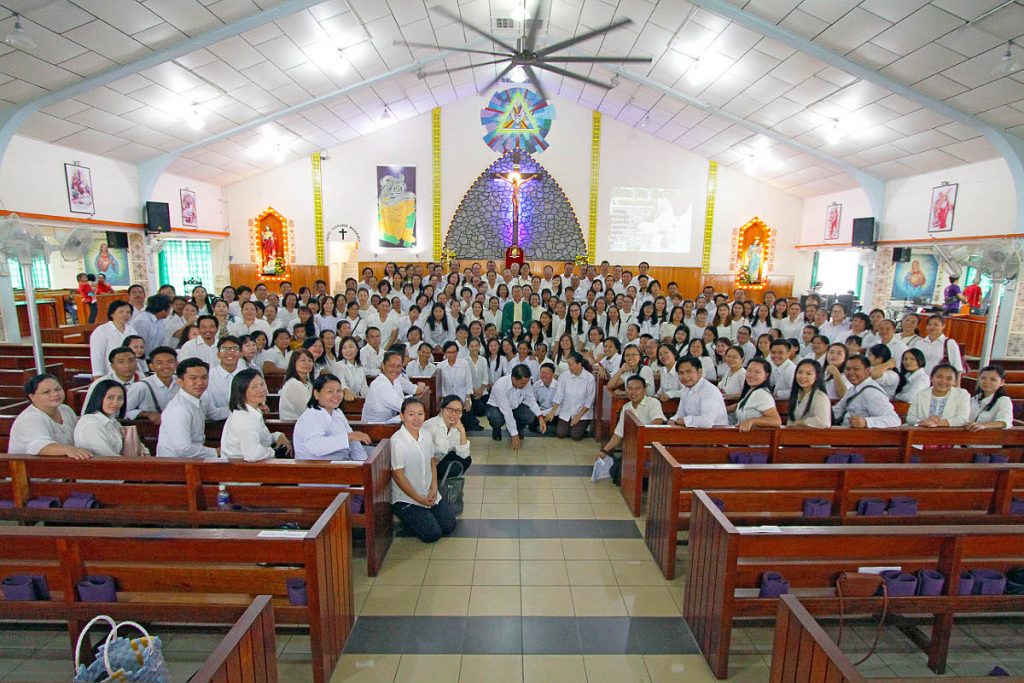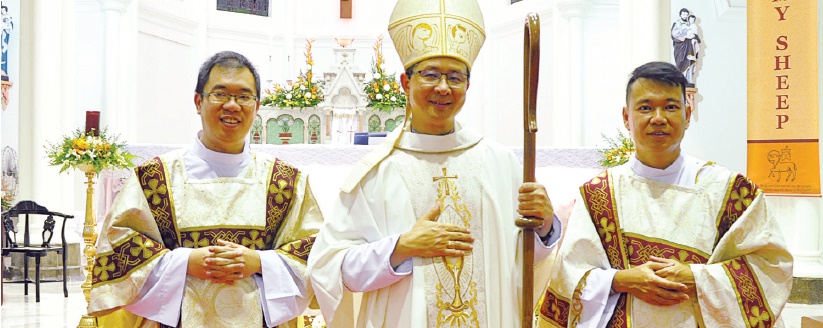A family poses in front of the Christmas Crib at St Peter Claver Ranau, 25 Dec 2017.
RANAU – Parish priest of St Peter Claver Ranau (SPCR) Church, Father Nicholas Stephen said people today are hungry for good news, which gives them hope for a better day ahead in the midst of uncertainties.
“Every day we wake up and see on our smartphones or tablets all kinds of bad news which make us question the hope for mankind and our own safety for tomorrow. We live in all kinds of fears,” he said.
“But today I urge people from all walks of life, regardless of their faith as well as ethnic background, to be joyful because the Christmas that we celebrate each year is the point where all hopes for tomorrow are renewed,” he continued.
Towards that end, Fr Nicholas said, people today should go to the Bethlehem of their souls, which has since been left dry and empty, and to rediscover the joy of life where the Saviour of mankind is born.
He was speaking to a crowd of about 3000 Catholic Christians at the Christmas Mass at St Peter Claver here on 25 Dec 2018.
He prayed that this year’s Christmas bring peace to all families, especially to all broken families, that their relationships would be restored once again, thus bringing peace to society, the state, the nation and the world as a whole.
Earlier that day, Fr Nicholas also launched the parish’s first published magazine entitled Effatha!, which was produced by St Peter Claver’s SOCCOM (Social Communications) Committee. The magazine featured all the activities that took place in SPCR in 2017.
The first edition of Effatha! also highlighted the journey made by the statue of Our Lady of Fatima throughout the seven zones under the Ranau parish, ending with the major street procession over the town of Ranau on Nov 25 last year.
On Dec 30, Fr Nicholas joined other community leaders for a Christmas and New Year celebration at district level.
At the event, Siringan Gubat, who co-hosted the event, and who is also Minister of Resource Development and Information Technology, said that such celebration is important, especially for people living in a multi-cultural setting like in Malaysia, especially in Sabah.
“This is why we never stop organising this event each year. Because an open house is like a tonic for the fostering of unity, especially considering that we in Ranau are living in a diversity of ethnic and religious backgrounds,” he said.
Dr Joachim Gunsalam who is also Assistant Minister of Local Government and Housing shared the sentiment and added that the event strengthened the brotherhood which has long been inherited by the people in Ranau.
“Good relationship among the people here has long existed and this acceptance between one another transcends the boundary of minds, interests and even political ideology,” he said.
Among the highlights of the celebration, which was held at the Dewan Masyarakat Ranau, were the singing of Christmas carols by choir groups from the different churches in Ranau, and distribution of Christmas goodies to children. – Clarence Dol
Article reproduced from Catholic Archdiocese of Kota Kinabalu




